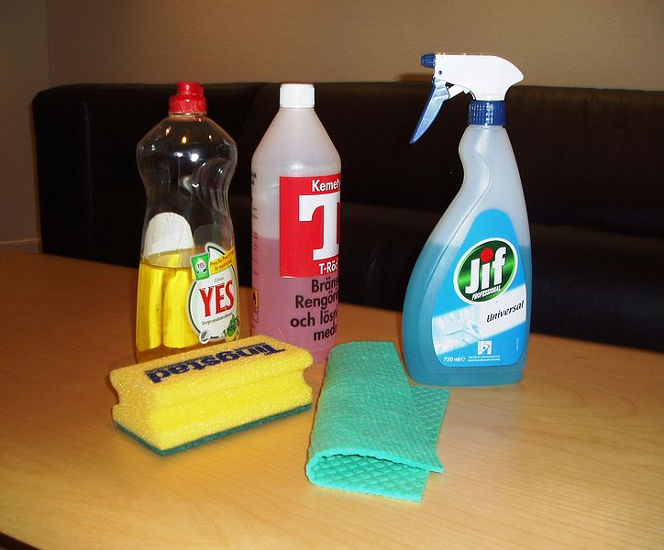
Through a series of decisions taken by the federal government of the United States, the selling of dishwasher detergent containing phosphates has been forbidden in the country. But this measure, designed to safeguard life, is making homeowners unhappy.
The new detergents, which were deprived of one of their main active ingredients, are apparently not as effective at removing grease and other types of dirt from dishes as their former selves.
This is making consumers very unhappy, given that phosphate-based cleaning agents are no longer sold anywhere in the United States. As such, they can find no alternative to the low-efficiency detergents they are currently stuck with using.
The situation is the focus of a new story, which appears on the cover of the current edition of the American Chemical Society's weekly journal Chemical & Engineering News (C&EN).
In the article, experts debate the issue on all sides. They take a look at the laws passed by 16 states, prohibiting the inclusion on sodium tripolyphosphate in household detergents.
When this chemical was first developed, it was heralded as the most effective substance for clearing dishes, as it did away with grease in no time. It was only later on that it negative side-effects began being discovered in hydrological studies.
Just like its counterparts used as agricultural fertilizers, sodium tripolyphosphate (STPP) can have a disastrous effect on streams, rivers and lakes. Once it makes its way into bodies of water, it begins to boost the growth of algae, which then go on to bloom.
These algal blooms are very dangerous for all other species living in the same ecosystem. They can create dead zones, areas where oxygen levels drop below those needed to support complex, aerobic life.
This means fish and invertebrates are slowly killed off, or forced to move to other locations. Because of the massive volume of algae, they prevent other plants from getting any sunlight, Science Blog reports.
Since the plants cannot simply take their root out of the lake floor or river bed and leave, it slowly dies off, unable to feed itself. All these negative effects were kept in mind when the use of STPP was prohibited for detergents.
From the dishwashers, the chemical can make its way to treatment facilities, and then onwards into the nations' rivers and streams. Now, this does not happen anymore, and the effects are already starting to show.
Since the laws are not about to change anytime soon, detergent manufacturers have already started working their chemical departments overtime, in a bid to find a phosphate-free formula that does not leave behind glassware and dishes sporting unsightly films and spots.


Tidak ada komentar:
Posting Komentar